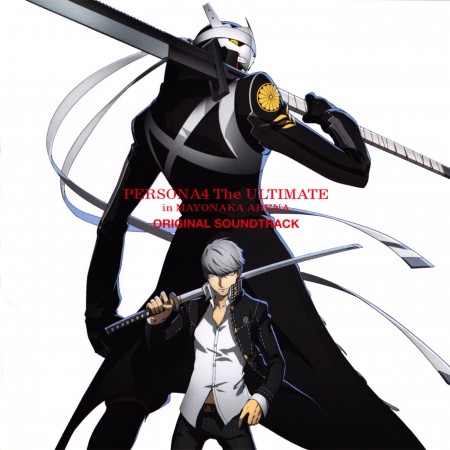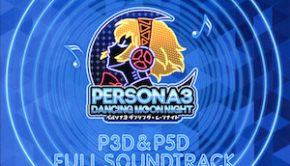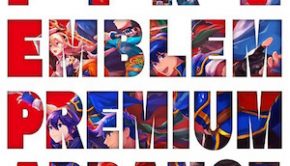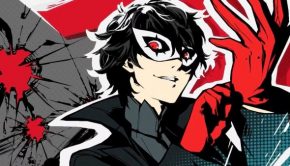Persona 4 -Arena- Original Sountrack
 |
Album Title: Persona 4 -Arena- Original Soundtrack (Persona 4 The Ultimate in Mayonaka Arena Original Soundtrack) |
| Record Label: Aniplex |
|
| Catalog No.: SVWC-7884 |
|
| Release Date: August 22, 2012 |
|
| Purchase: Buy at CDJapan |
Overview
Persona 4 Arena Original Soundtrack (or the Persona 4 -The Ultimate in Mayonaka Arena- Original Soundtrack in Japan) is the soundtrack for the first fighting game Persona 4 spin-off. The soundtrack is composed by series veterans Shoji Meguro and Atsushi Kitajo, mostly containing new material with very few direct references to Persona 4 material. Being written for a fighting game, the soundtrack has many rousing rock tracks to accompany the frantic and energetic battles, but it all leaves less room for the stylized vocal themes and more unique tones that we’ve come to expect from the series.
Body
The soundtrack begins with the newly penned theme song, “Best Friends”. Yumi Kawamura has the lead vocal on this unfortunately rather generic pop rock track. It’s certainly full of energy and has a decently catchy melody to it as well, but it isn’t nearly as unique as the vocal tracks that we’ve become used to in the Persona series. A shorter instrumental version is also on the album, with the electric guitar taking the main melody. One of the other main themes is “The Ultimate”, although it does not feature vocals. It’s also a rock track with a lot of energy and a decent melody, but at just over a minute long it barely leaves an impression. The later “The Ultimate -Stage Edit-“ is more substantial, being two minutes long. The instrumentation is more typical of a rock track than the original version was, but I think it actually sounds better that way. Then there is “NOW I KNOW”, the ending theme for the game. Shihoko Hirata sings this track, and it is in the vein of previous ending themes for the series, being a light band-accompanied midtempo track. It’s got a great catchy melody, and that’s all the track really needs.
The album also includes a number of shorter cues, most lasting less than half a minute. Most of these are short rock riffs, like “The Fighter”, “Sparks Fly”, and “Who Goes?”, which are far too short to leave any sort of impression. The longer “Don’t Give Up!” shows more promise, being one of the more interesting tracks on the album with its frantic busyness and quick pace, but it doesn’t get to go anywhere unfortunately. The victorious “The Winner” is pleasant enough, but is typical for these themes. “Poem for Everyone’s Souls” manages to be more memorable, if only because it stands out as a piano solo amongst predominantly rock tracks, and also because it transitions into a tease of the Velvet Room Aria. These tracks are nice for those who wanted them from the game, but they don’t add much to the album.
The remaining tracks largely consist of stage tracks, and almost all are rock tracks. Unfortunately they don’t have too much going for them for the most part, being fairly cookie-cutter and having few distinguishing characteristics. “The Junes Hero” has a decent bit of youthful energy to it, but it isn’t particularly memorable. “Like The Dragon” benefits from some other instruments like brass and a violin, but these side instruments sound a bit cheap. “Kuma-Kuma Circus” is much brassier than the others and has a lot of attitude, but again the cheaper sound lets the track down. The darker “Missions For The Brilliant Executor” and spunky “Spirited Girl” are more straightforward rock, but that is not really to the advantage of the tracks. None of these are particularly bad by any means, but they rarely rise above filler status amongst the stronger tracks.
There are however some tracks that manage to stand out, despite sharing the rock style with the others. What works in these tracks is the connection to the music of the Persona series, not necessarily reusing melodies or remixing tracks, but rather incorporating into their melodies shades of songs from the mainline titles, giving them a familiarity in a fresh new setting. “Princess Amagi-ya” is one of these tracks, and the track is instantly much more memorable for it. It helps that the arrangement is very energetic, and here the lead violin doesn’t sound so bad, even passionate at times. “A Pure-Hearted Beast” incorporates a bit of jazziness into the rock mix, having even a bit of improv which is nice. “Seeker of Truth” has one of the better melodies of the soundtrack, and it also has a solid piano and brass backing. “The Wandering Wolf” has a deeper and more serious sound than most of the others with some edge, and the more epic “Shadows Of The Labyrinth” is also great with its darker atmosphere and dance beat. Two of the tracks do directly remix older Persona tracks. “Reach Out To The Truth” is remixed here with a generally edgier sound over the original. It’s a bit too busy at the verses for me, but the chorus works quite well and I like the inclusion of the jazz organ to make things a bit more fun. Persona3’s “Heartful Cry” also makes an appearance. The rock elements of the original are still present, but they are complemented by some electronic elements, with a thumping beat and various synths. It fills out the sound well, and makes the track more fitting for the game. Other than the new vocal themes, this bunch are really the only tracks that I like to re-listen to from the soundtrack.
Summary
Persona 4 Arena Original Soundtrack is a fine soundtrack for the game it accompanies, but it is merely serviceable outside of it. Leaning more on rock stylings, it is a bit of a departure from the Persona 4 realm of music, which would be less of a problem if some of the tracks did not feel so generic or unmemorable. It would have been better to have more remixes of existing Persona4 material. Still, it all works well for the game, being for the most part well made and keeping energy up throughout the battles. The are a few tracks that rise above and are really great, cleverly playing on shadows of Persona 4 motifs. But with the amount of filler and the more generic styling, the soundtrack outside of the game lacks the wider appeal that the mainline soundtracks have. Fans of the game will be happy enough, but that’s probably it.
Do you agree with the review and score? Let us know in the comments below!
3
Posted on December 3, 2015 by Christopher Huynh. Last modified on January 19, 2016.














